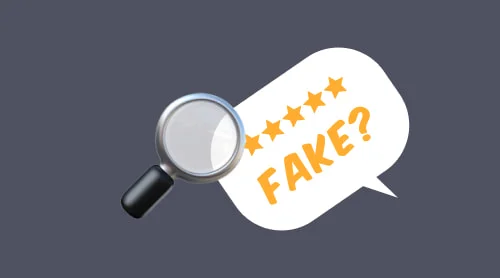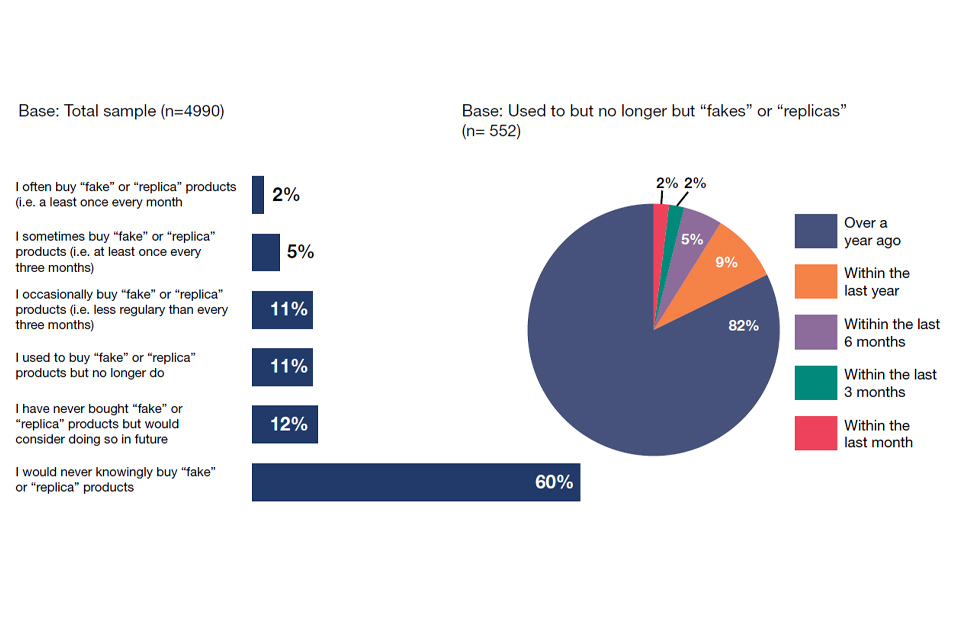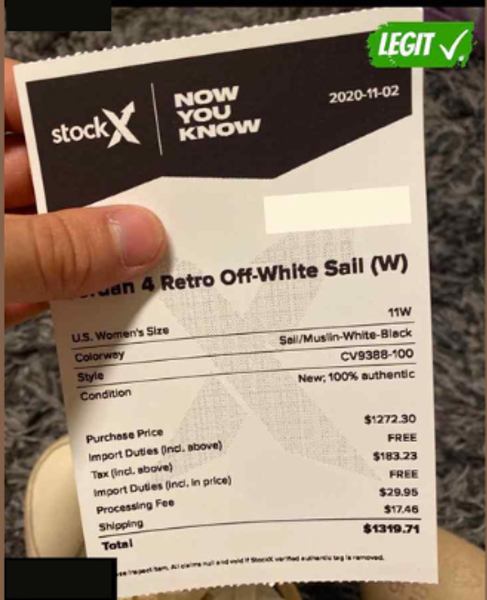What You Need to Know Before Buying from Stock X
When it comes to buying luxury goods online, authenticity is a top concern. Stock X, a popular online marketplace, has gained a reputation for offering a wide range of high-end products, but the question remains: does Stock X sell fakes? While the platform has implemented various measures to ensure the authenticity of its products, the risk of counterfeit goods still exists. In this article, we will delve into the importance of verifying the authenticity of products sold on Stock X and the potential consequences of buying counterfeit goods.
The rise of e-commerce has made it easier for counterfeiters to sell fake products, and online marketplaces like Stock X are not immune to this issue. According to a report by the International Chamber of Commerce, the global trade in counterfeit goods is estimated to be worth over $500 billion annually. This highlights the need for buyers to be vigilant when purchasing luxury goods online.
Buying counterfeit goods can have serious consequences, including financial losses and damage to one’s reputation. Moreover, supporting fake sellers can perpetuate the cycle of counterfeiting, making it more challenging for legitimate businesses to operate. Therefore, it is essential to take the necessary steps to verify the authenticity of products before making a purchase on Stock X.
So, what can you do to minimize the risk of buying counterfeit goods on Stock X? In the following sections, we will provide tips and tricks for identifying fake products, as well as expert advice on how to verify the authenticity of a product. We will also examine Stock X’s stance on counterfeit products and its authentication process, highlighting the limitations and potential loopholes that counterfeiters can exploit.
How to Spot a Fake Product on Stock X: Red Flags to Watch Out For
When browsing through Stock X’s vast marketplace, it can be challenging to distinguish between authentic and counterfeit products. However, there are several red flags to watch out for that can help you make a more informed purchasing decision. One of the most significant indicators of a fake product is a suspiciously low price. If the price of a luxury item seems too good to be true, it likely is. Be wary of prices that are significantly lower than those offered by other sellers or the manufacturer’s official website.
Poor product images are another common trait of counterfeit products on Stock X. Legitimate sellers typically provide high-quality images of the product from multiple angles, while counterfeiters may use low-resolution images or photos that are clearly Photoshopped. Additionally, be cautious of product descriptions that seem inconsistent or lack specific details about the item.
Other red flags to watch out for include sellers with low ratings or few reviews, as well as those who are unwilling to provide additional information about the product or their return policies. By being aware of these warning signs, you can reduce the risk of buying a fake product on Stock X and ensure a more positive shopping experience.
It’s also essential to note that even with these precautions, the risk of buying a counterfeit product on Stock X still exists. The platform’s vast size and the sheer volume of transactions make it challenging to detect and prevent all instances of counterfeiting. Therefore, it’s crucial to remain vigilant and take the necessary steps to verify the authenticity of a product before making a purchase.
So, does Stock X sell fakes? While the platform has implemented measures to prevent counterfeiting, the risk still exists. By being aware of the red flags and taking the necessary precautions, you can minimize the risk of buying a counterfeit product and ensure a more positive shopping experience on Stock X.
Stock X’s Stance on Counterfeit Products: What They Say vs. What They Do
Stock X has publicly stated its commitment to preventing the sale of counterfeit products on its platform. According to its website, Stock X has a “zero-tolerance policy” towards counterfeiting and works closely with brands and law enforcement agencies to identify and remove fake products from its marketplace. However, despite these efforts, many customers have reported encountering counterfeit products on the platform.
A review of Stock X’s official policies and statements on counterfeiting reveals a disconnect between what the company says and what it actually does. While Stock X claims to have a robust authentication process in place, many customers have reported that the process is not foolproof and that counterfeit products can still slip through the cracks.
For example, some customers have reported purchasing fake designer clothing and shoes on Stock X, despite the platform’s claims of having a strict authentication process. In some cases, the counterfeit products were even sold by verified sellers, highlighting the limitations of Stock X’s authentication process.
Furthermore, some customers have reported difficulty in getting refunds or resolving issues with counterfeit products on Stock X. This has led to frustration and mistrust among customers, who feel that the platform is not doing enough to protect them from counterfeiters.
So, does Stock X sell fakes? While the platform has made efforts to prevent counterfeiting, the reality is that counterfeit products can still be found on the platform. By understanding the limitations of Stock X’s authentication process and being aware of the potential risks, customers can take steps to protect themselves and make more informed purchasing decisions.
It’s clear that Stock X needs to do more to address the issue of counterfeiting on its platform. By improving its authentication process and providing better support to customers who have encountered counterfeit products, Stock X can rebuild trust and provide a safer shopping experience for its customers.
Real-Life Examples of Fake Products Sold on Stock X: Lessons Learned
Despite Stock X’s efforts to combat counterfeiting, numerous cases of fake products have been reported on the platform. These incidents serve as a reminder of the importance of due diligence when buying on Stock X. One notable example is the sale of fake Nike Air Yeezy 2 “Red October” sneakers. The shoes, which were listed for a significantly lower price than their authentic counterparts, were later confirmed to be counterfeit. The buyer, who had unknowingly purchased the fake shoes, was left with a worthless product and a financial loss.
Another example is the sale of fake Louis Vuitton Neverfull MM handbags. The bags, which were listed with poor-quality images and inconsistent product descriptions, were later found to be counterfeit. The buyer, who had purchased the bag as a gift, was left feeling embarrassed and disappointed. These incidents highlight the risks of buying on Stock X and the importance of verifying the authenticity of products before making a purchase.
In some cases, counterfeiters have even gone so far as to create fake packaging and documentation to make their products appear authentic. For example, a buyer reported purchasing a fake Rolex watch on Stock X, complete with fake packaging and documentation. The watch was later confirmed to be counterfeit, and the buyer was left with a significant financial loss.
These examples demonstrate the importance of being cautious when buying on Stock X. While the platform has implemented measures to combat counterfeiting, it is still possible for fake products to slip through the cracks. Buyers must be vigilant and take steps to verify the authenticity of products before making a purchase. This includes researching the seller’s reputation, checking for serial numbers and other authentication marks, and inspecting the product packaging and documentation.
By being aware of the risks and taking steps to mitigate them, buyers can minimize the risk of buying counterfeit products on Stock X. However, it is also important to note that even with due diligence, there is still a risk of buying a fake product. As such, buyers must be prepared to take action if they suspect that they have purchased a counterfeit product. This includes reporting the issue to Stock X and seeking a refund or replacement.
Ultimately, the key to avoiding counterfeit products on Stock X is to be informed and vigilant. By understanding the risks and taking steps to mitigate them, buyers can minimize the risk of buying a fake product and ensure a safe and successful transaction. Does Stock X sell fakes? While the platform has measures in place to combat counterfeiting, the risk of buying a fake product still exists. By being aware of this risk and taking steps to mitigate it, buyers can ensure a positive experience on Stock X.
How to Verify the Authenticity of a Product on Stock X: Tips from Experts
Verifying the authenticity of a product on Stock X requires a combination of research, due diligence, and attention to detail. According to experts, there are several steps buyers can take to ensure they are purchasing a genuine product. First, it’s essential to research the seller’s reputation and check for reviews from other customers. A reputable seller will have a high rating and positive feedback from previous buyers.
Next, buyers should inspect the product images and descriptions carefully. Look for high-quality images that show the product from multiple angles. Check for any inconsistencies in the product description, such as misspellings or grammatical errors. A legitimate seller will provide detailed and accurate information about the product.
Another crucial step is to check for serial numbers and other authentication marks. Many luxury brands, such as Louis Vuitton and Gucci, include serial numbers or codes on their products. Buyers can verify these numbers with the manufacturer to ensure the product is genuine.
In addition, buyers should inspect the product packaging and documentation. Luxury brands often include high-quality packaging and documentation, such as dust bags and authenticity cards. Check for any signs of tampering or alterations.
Experts also recommend researching the market value of the product. If the price is significantly lower than similar products on other marketplaces, it may be a red flag. Buyers should also be wary of sellers who are unwilling to provide additional information or photos of the product.
Finally, buyers can use third-party authentication services, such as LegitCheck or Authenticate4U, to verify the authenticity of a product. These services use experts to inspect the product and provide a report on its authenticity.
By following these tips, buyers can minimize the risk of buying a counterfeit product on Stock X. However, it’s essential to remember that even with due diligence, there is still a risk of buying a fake product. As the question “does Stock X sell fakes” continues to circulate, buyers must remain vigilant and take steps to protect themselves.
Stock X has implemented various measures to combat counterfeiting, including the use of third-party authenticators and AI-powered technology. However, the platform’s authentication process is not foolproof, and counterfeiters continue to find ways to exploit loopholes. By being aware of these risks and taking steps to mitigate them, buyers can ensure a safe and successful transaction on Stock X.
Stock X’s Authentication Process: How It Works and Its Limitations
Stock X has implemented a multi-step authentication process to verify the authenticity of products sold on its platform. The process involves a combination of human inspection and AI-powered technology. When a seller lists a product on Stock X, it is first reviewed by the platform’s algorithms to detect any potential red flags, such as suspiciously low prices or inconsistent product descriptions.
If the product passes the initial review, it is then inspected by a team of human authenticators who verify the product’s serial number, packaging, and other authentication marks. Stock X also partners with third-party authenticators, such as The RealReal and LegitCheck, to provide additional verification.
However, despite these efforts, Stock X’s authentication process is not foolproof. Counterfeiters continue to find ways to exploit loopholes and deceive the platform’s authenticators. For example, some counterfeiters have been known to create fake serial numbers or alter the product’s packaging to make it appear authentic.
Additionally, Stock X’s reliance on third-party authenticators can also be a limitation. While these authenticators are experts in their field, they are not infallible and can make mistakes. Furthermore, the use of AI-powered technology can also be flawed, as it is only as good as the data it is trained on.
Another limitation of Stock X’s authentication process is that it only verifies the product’s authenticity at the time of listing. If a seller is found to be selling counterfeit products, they may be banned from the platform, but the damage may already be done. Buyers may have already purchased the fake products, and it may be difficult to recover their losses.
As the question “does Stock X sell fakes” continues to circulate, it is clear that the platform’s authentication process is not perfect. While Stock X has made efforts to combat counterfeiting, it is still possible for fake products to slip through the cracks. Buyers must remain vigilant and take steps to verify the authenticity of products themselves, rather than relying solely on Stock X’s authentication process.
Ultimately, the key to minimizing the risk of buying counterfeit products on Stock X is to be aware of the platform’s limitations and take steps to protect oneself. By understanding how Stock X’s authentication process works and its limitations, buyers can make more informed purchasing decisions and avoid falling victim to counterfeiters.
What to Do If You’ve Bought a Fake Product on Stock X: A Step-by-Step Guide
If you’ve unknowingly bought a fake product on Stock X, it’s essential to take immediate action to report the issue and initiate a refund. Here’s a step-by-step guide to help you navigate the process:
Step 1: Contact Stock X’s Customer Support
Reach out to Stock X’s customer support team via email or phone and report the issue. Provide them with your order number, a detailed description of the product, and any evidence that suggests the product is fake.
Step 2: Provide Proof of Authenticity
Stock X may request proof of authenticity from the manufacturer or a third-party authenticator. Be prepared to provide this documentation to support your claim.
Step 3: Initiate a Refund
Once Stock X has verified that the product is fake, they will initiate a refund process. You can expect a full refund, including the original shipping cost.
Step 4: Prevent Future Occurrences
To prevent buying fake products on Stock X in the future, make sure to research the seller’s reputation, check for serial numbers and authentication marks, and inspect the product packaging and documentation carefully.
It’s also essential to be aware of the risks associated with buying on Stock X, as the platform’s authentication process is not foolproof. As the question “does Stock X sell fakes” continues to circulate, it’s crucial to take steps to protect yourself from counterfeiters.
By following these steps, you can minimize the risk of buying counterfeit products on Stock X and ensure a safe and successful transaction. Remember, it’s always better to be cautious and do your due diligence when buying on online marketplaces.
In addition to these steps, it’s also important to report the fake product to the relevant authorities, such as the Federal Trade Commission (FTC) or the National Intellectual Property Rights Coordination Center (IPR Center). This can help prevent others from falling victim to the same scam.
By taking action and reporting the issue, you can help create a safer and more trustworthy online marketplace for everyone.
Conclusion: Navigating the Risks of Buying on Stock X
In conclusion, buying on Stock X requires a certain level of caution and due diligence. While the platform has implemented measures to combat counterfeiting, the risk of buying fake products still exists. As the question “does Stock X sell fakes” continues to circulate, it’s essential to be aware of the potential risks and take steps to protect yourself.
By understanding the importance of verifying the authenticity of products, identifying red flags, and using expert tips to verify authenticity, you can minimize the risk of buying counterfeit products on Stock X. Additionally, being aware of the platform’s authentication process and its limitations can help you make more informed purchasing decisions.
Ultimately, the key to navigating the risks of buying on Stock X is to be informed and vigilant. By taking the necessary precautions and doing your due diligence, you can ensure a safe and successful transaction on the platform.
Remember, it’s always better to be safe than sorry. If you’re unsure about the authenticity of a product or the seller’s reputation, it’s best to err on the side of caution and avoid making the purchase. Your wallet and your peace of mind will thank you.
In the world of online marketplaces, it’s essential to be proactive and take steps to protect yourself from counterfeiters. By being aware of the risks and taking the necessary precautions, you can enjoy a safe and successful shopping experience on Stock X and other online platforms.
So, does Stock X sell fakes? While the platform has measures in place to combat counterfeiting, the risk of buying fake products still exists. By being informed and vigilant, you can minimize this risk and ensure a safe and successful transaction on Stock X.




:max_bytes(150000):strip_icc()/GettyImages-1220909109-00cd067f887a48408340f54ddf0ecb1d.jpg)

